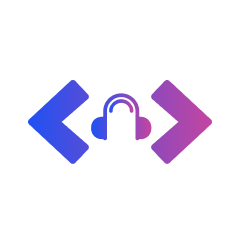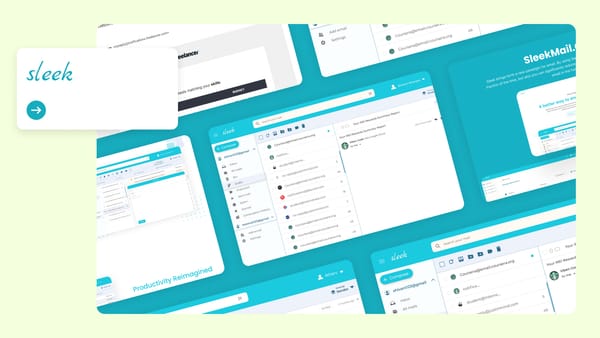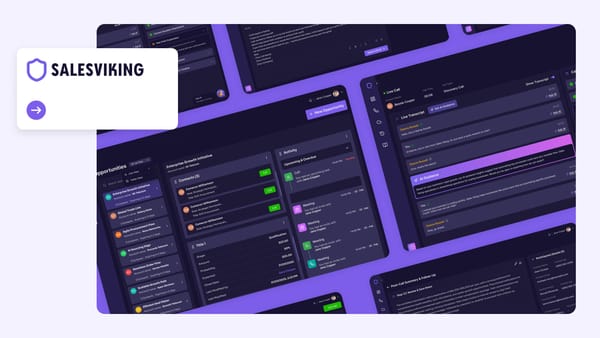Boost Talent Acquisition with AI in Hiring Process Magic

Are you tired of wasting hours on resumes and endless interviews? Well, you’re not alone. As the competition for top talent intensifies, businesses are turning to AI in hiring process solutions to streamline their recruitment strategies.
This article will explore how AI is changing how companies find and attract top candidates.
The Role of AI in Hiring Process
AI recruitment solutions use advanced algorithms and machine learning. They analyze resumes, find top candidates, and predict their organisational fit. These tools save HR’s time. They automate tasks like resume screening and shortlisting candidates. They can now focus on more strategic aspects of hiring.
AI tools can cut recruitment time and costs. They can also improve hire quality. These tools can find valuable insights into huge data. They can show patterns in successful hires and traits of top performers. They can also identify potential future leaders. The use of AI in hiring has changed the game for businesses. It helps them attract and retain top talent.
Join us as we explore AI recruitment tools. They are changing the game for businesses of all sizes.
The Challenges of the Traditional Hiring Process
The traditional hiring process frustrates HR professionals and hiring managers. A major challenge is the high volume of applications for each job opening. With hundreds of resumes flooding in, it’s hard to find qualified candidates. This often leads to great talent being overlooked. Their resumes didn’t stand out in a sea of submissions. The manual process of reviewing resumes is slow and prone to error. This can complicate the selection process.
Moreover, the reliance on traditional methods often results in a lack of diversity in candidate pools. Many companies unintentionally replicate biases in their hiring practices. This can hinder innovation and decision-making. AI hiring tools can reduce biases. They can help create a more inclusive and diverse recruitment strategy.
Additionally, the traditional interview process can be inefficient and biased. Candidates may be judged on subjective, not objective, criteria. This means their skills and abilities may be overlooked. It can lead to bad hires. This harms team dynamics and productivity. The interview process often involves multiple rounds and long discussions. It wastes time for both candidates and recruiters. To attract top talent, companies must evolve their hiring practices. The workforce landscape is changing fast.
How AI Recruitment Solutions Work
AI recruitment solutions leverage advanced technology to address the challenges of traditional hiring. These solutions use machine learning. It lets systems analyze vast data quickly and efficiently. When a job opening is created, the AI can automatically screen resumes by comparing them to the job description. It uses algorithms to find skills and qualifications. They must match the hiring organization’s requirements. This not only speeds up the screening process but also ensures that no qualified candidate is overlooked.
Moreover, AI recruitment tools are designed to learn from past hiring decisions. By studying the traits of successful hires, these systems can improve their algorithms. They can then better predict which candidates will thrive in a role. Predictive analytics helps organizations make data-driven decisions. It cuts reliance on gut feelings and biases. As the AI system learns from new data, it improves at selecting candidates. This leads to better hiring outcomes over time.
Also, AI recruitment tools can help in communicating with candidates during hiring. AI-powered chatbots can engage with applicants. They can answer FAQs, schedule interviews, and provide application status updates. This not only enhances the candidate experience but also frees up HR personnel to focus on more strategic tasks. Organizations can streamline hiring by automating repetitive tasks. This will engage potential hires more.
Benefits of Using AI Recruitment Solutions
Implementing AI in hiring process solutions offers numerous benefits:
- Increased Efficiency: Automating tasks, like resume screening, saves time and speeds up hiring.
- Improved Quality of Hires: AI uses data to find top candidates. They must fit the company’s culture and goals.
- AI boosts diversity and inclusion. It focuses on skills, not demographics. This cuts biases and widens candidate pools.
AI Recruitment Solution Case Studies
Several organizations have used AI in recruitment. Their success shows the technology’s potential.
Unilever’s AI Recruitment Success:
- Adopted AI-driven recruitment for entry-level positions.
- The streamlined hiring process reduces the timeline from four months to a few weeks.
- Improved diversity in the candidate pool.
- Achieved higher-quality hires, reflecting the communities they serve.
Hilton Hotels’ AI Integration:
- Used AI chatbots for preliminary candidate engagement and interviews.
- Allowed HR teams to focus on pre-screened candidates.
- Enhanced candidate experience.
- Accelerated onboarding fills critical positions more quickly.
IBM’s Bias Reduction in Hiring:
- Utilized AI algorithms to analyze and refine job descriptions and candidate profiles.
- Eliminated biased language to attract underrepresented groups.
- Resulted in a more diverse applicant pool.
- Contributed to the improved overall company performance.
These case studies show the benefits of AI recruitment tools. They can make hiring more efficient and fair.
Implementing AI Recruitment Solutions
Businesses must carefully plan and assess their current systems to integrate AI in hiring process tools effectively. Key steps include:
Assess Current Hiring Processes:
- Begin by evaluating your current recruitment methods to identify areas where AI can add value.
- Assess existing technologies to determine compatibility with AI tools.
- Select an AI recruitment platform that aligns with your organization’s needs and goals.
- Involve key stakeholders, such as HR personnel and hiring managers, to ensure buy-in and support for the transition.
Set Clear Goals and Metrics:
- Define your goals for AI solutions. For example, reduce time-to-hire, improve candidate quality, and enhance diversity.
- Establish measurable objectives to evaluate the effectiveness of the AI tools.
- Regularly check progress. Get feedback from hiring teams and candidates. Use the data to make changes as needed.
Train and Onboard the HR Team:
- Provide comprehensive training to help HR staff effectively use AI recruitment solutions.
- Teach them how to interpret AI-generated insights and integrate these insights into decision-making.
- Foster a culture of continuous learning and adaptability to fully leverage the benefits of AI in recruitment.
Considerations When Choosing an AI in Hiring Process
The future of AI in hiring process is bright. It must align with your organization’s goals and needs. Start by assessing the technology’s capabilities. Check for features like resume parsing, candidate scoring, and predictive analytics. Also, look for automated communication. These functionalities can streamline the hiring process and improve decision-making. Knowing your team’s needed features will help you choose the best option.
Data privacy and compliance are also critical factors. In an era of increasing scrutiny over data protection, it’s essential to choose a solution that adheres to relevant regulations. Ensure the vendor has strong security to protect candidate data. They must be transparent about data use and storage. Data integrity protects your organization and builds trust with candidates. It helps your employer’s reputation.
Additionally, consider the solution’s customization and integration capabilities. The tool must integrate with your HR systems and workflows. It should cause minimal disruption and boost efficiency. Customizable features are vital. They let you tailor the platform to your unique hiring processes and culture. Talk to vendors about their support for integration and customization. This will help you choose a solution that meets your needs and fits your recruitment strategy.
Training and Support for AI Recruitment Solutions
Training and support are vital for successful AI recruitment. It’s crucial to provide comprehensive training sessions for your HR team, covering all aspects of the technology. This training should cover both using the AI tools and interpreting data insights. Equip your team with the skills to use these solutions. This will boost their confidence in using AI for recruitment.
Additionally, consider the availability of vendor support and resources. Many AI recruitment solution providers offer support. This includes dedicated account managers, online resources, and user forums. Assessing potential vendors’ support can help. It ensures your organization gets help with any issues that come up during implementation. A good support system can help with the shift to AI in recruitment.
Also, it’s vital to foster a culture of continuous learning. It will maximize the benefits of AI recruitment solutions. Encourage your HR team to keep up with HR trends, best practices, and AI advancements. Regularly conduct refresher training sessions and workshops to reinforce skills and knowledge. You can empower your team by valuing ongoing education. It will help them adapt to new technologies and improve their talent acquisition skills.
Future Trends in AI Recruitment Solutions
As technology advances, the future of AI recruitment is bright. One emerging trend is the increased use of artificial intelligence in predictive analytics. Organizations will increasingly rely on AI to analyze vast datasets. It will identify trends and patterns to inform hiring strategies. It will help companies better evaluate candidates and predict their fit.
Also, AI’s integration with other emerging technologies, like VR and AR, is likely to reshape recruitment. For instance, organizations may start using VR in their hiring processes. It would let candidates immerse themselves in realistic job simulations or company culture. This could boost engagement. It would help candidates understand the role before their interviews.
As demand for remote work grows, AI recruitment tools will be vital for hiring. They can assess candidates from diverse locations, expanding the talent pool. These tools will focus on remote work skills and adaptability for virtual collaboration. As recruitment evolves, AI will lead in innovation and efficiency in talent acquisition.
Conclusion
AI in the hiring process is transforming solutions and talent acquisition. It automates tasks, reduces biases, and improves hire quality. These tools use advanced algorithms and data. They streamline candidate evaluation and boost diversity. To compete for top talent, organizations must adopt AI in hiring.
AI recruitment solutions must be implemented with precision. Consider technology, data privacy, and support. Training HR teams will help them use these tools. This will improve hiring outcomes. Also, following trends will help organizations stay competitive in recruitment.
As businesses change how they hire, AI recruitment tools can revolutionize the process. This tech can help companies. It can streamline work, reduce bias, and build a diverse, high-performing workforce. The future of hiring is here, and AI is leading the way.





